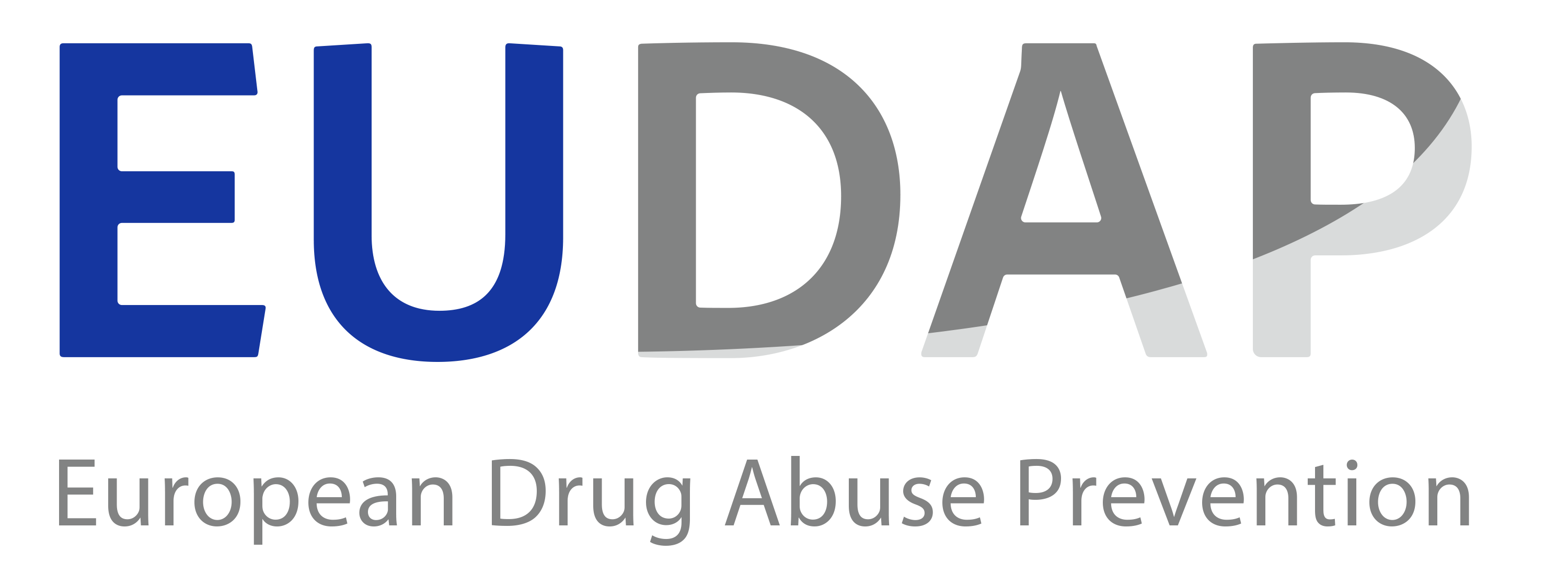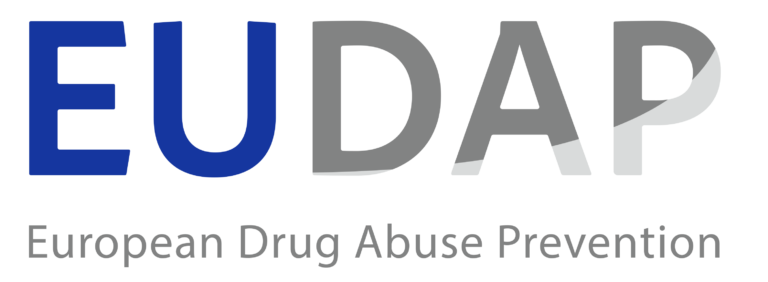Training of Trainers
In a pilot phase, we recommend organizing several teacher training workshops for several reasons:
- Get acquainted with the program and experiment with the program in real school settings.
- Involve important stakeholders and decision makers; not only from domain of drugs/health, but certainly include education.
- Gather feedback on program materials.
- Start organizing an effectiveness study for wider dissemination and looking for research partners.
For sustainability, a national/regional pool of trainers should be trained to continue training in the country after the pilot phase. Most sustainable is to train around 6 trainers, of whom 1 master trainer.
- Trainers are expected to continue organizing several training workshops to train teachers annually. Ideally, they can do this as part of/ or exempted from part of their current job.
- The master trainer can train more trainers, depending on the needs during the scaling up of the program.
Selection of Candidate Trainers
Even though the project request often comes from the domain of prevention, narcotics control or public health, Unplugged is a school-based project. As such we recommend from an early phase to include the education partners.
From experience in more than 30 countries EU-Dap Faculty learned that it is an effective strategy to select candidate trainers among the participating teachers from the first workshop(s).
- Teachers who are certified as Unplugged trainers connect best to teacher groups in the future.
- The educational competences in understanding the reality of a classroom and to conduct interactive exercises with pupils are more important than health-, crime- or prevention related academic competences.
- Trainers from the educational field better understand the possibilities where to embed the training in the organizational system of lifelong learning for teachers.
However, for trainers of teachers, also health educators and prevention practitioners have been found to successfully train teachers (Italy, Czech Republic). Who is to be selected for candidate trainers depends on the establishment and performance of the national health system and relation between a public health department and education department.
The EU-Dap Faculty international master trainer looks at several criteria to advise on most promising candidate trainers to continue the training process.
Selection criteria include:
- perception of group dynamic
- ability to conduct group exercises with adults
- creative group problem solving skills
- having a learning and self-reflection attitude
- balance of instructive and empathic approach
- understanding of Unplugged core components
- ability to communicate in English
- perspective of availability to prepare, travel, deliver and report on training workshops at a frequency as discussed and anticipated with national coordinator
Training of Candidate Trainers
After selection, the candidate trainer goes through 3 steps with the EU-Dap Faculty trainer to get certified as trainer of teachers.
1. Observation
The candidate trainer receives the detailed training workshop manual and observes the workshop with this training manual in hand (as opposed to the teachers who attend with the teacher manual at hand). The candidate trainer writes down any questions, uncertainties there might be concerning the methodology as written in the manual or what/how the master trainer displays.
The master trainer organizes debriefing sessions:
- After each training day of the first 2 workshop days: the master trainer explains on rationale of certain activities, answers any remaining questions and stresses important processes.
- Day after the training workshop, the master trainers run through the entire workshop with the candidate trainer, clarifying the entire structure of the workshop and explaining on next steps in the training process: assigning which activities the candidate trainer should facilitate in the next step and stressing important focus areas.
2. Co-training
Two weeks ahead of the following teacher training workshop, the candidate trainer receives the assignment for the co-training workshop. Approximately 50% of activities as described in the trainer manual is assigned to the candidate trainer. The master trainer ensures a mix of activities where the candidate exercises and displays different skills such as giving a presentation, giving stepped instructions, or leading a class discussion. The candidate trainer prepares in detail how to facilitate the assigned activities.
During the workshop, the master trainer corrects, adds, coaches, demonstrates, and instructs the candidate trainer. This also ensures the high quality of the workshop for the teachers being trained.
Again, after each training day, the observations made by the master trainer on the candidate’s trainers’ performance are fed back. Specific focus areas for the next training day are highlighted. After the 3rd day of training, the entire training manual and rationale is discussed.
The master trainer drafts a detailed report on the performance of the candidate trainer, some days after the workshop.
3. Coached solo delivery
Two weeks ahead of the following workshop, the candidate trainer receives the assignment from the master trainer. This includes an almost full delivery of the training workshop, and the organization of the workshop as would be expected from the trainer in the national dissemination strategy. The master trainer has the opportunity to facilitate smaller parts in order to demonstrate proper style or method whenever appropriate.
Again, every evening the feedback from the master trainer is given and focus areas for next workshop day are set. The day after the workshop finished, there is a final feedback round and certification if satisfactory.
Following days, the trainer receives a final report on the performance in the workshop and areas of focus for future training workshops.
Training of Candidate Trainers
After selection, the candidate trainer goes through 3 steps with the EU-Dap Faculty trainer to get certified as trainer of teachers.
1. Observation
The candidate trainer receives the detailed training workshop manual and observes the workshop with this training manual in hand (as opposed to the teachers who attend with the teacher manual at hand). The candidate trainer writes down any questions, uncertainties there might be concerning the methodology as written in the manual or what/how the master trainer displays.
The master trainer organizes debriefing sessions:
- After each training day of the first 2 workshop days: the master trainer explains on rationale of certain activities, answers any remaining questions and stresses important processes.
- Day after the training workshop, the master trainers run through the entire workshop with the candidate trainer, clarifying the entire structure of the workshop and explaining on next steps in the training process: assigning which activities the candidate trainer should facilitate in the next step and stressing important focus areas.
2. Co-training
Two weeks ahead of the following teacher training workshop, the candidate trainer receives the assignment for the co-training workshop. Approximately 50% of activities as described in the trainer manual is assigned to the candidate trainer. The master trainer ensures a mix of activities where the candidate exercises and displays different skills such as giving a presentation, giving stepped instructions, or leading a class discussion. The candidate trainer prepares in detail how to facilitate the assigned activities.
During the workshop, the master trainer corrects, adds, coaches, demonstrates, and instructs the candidate trainer. This also ensures the high quality of the workshop for the teachers being trained.
Again, after each training day, the observations made by the master trainer on the candidate’s trainers’ performance are fed back. Specific focus areas for the next training day are highlighted. After the 3rd day of training, the entire training manual and rationale is discussed.
The master trainer drafts a detailed report on the performance of the candidate trainer, some days after the workshop.
3. Coached solo delivery
Two weeks ahead of the following workshop, the candidate trainer receives the assignment from the master trainer. This includes an almost full delivery of the training workshop, and the organization of the workshop as would be expected from the trainer in the national dissemination strategy. The master trainer has the opportunity to facilitate smaller parts in order to demonstrate proper style or method whenever appropriate.
Again, every evening the feedback from the master trainer is given and focus areas for next workshop day are set. The day after the workshop finished, there is a final feedback round and certification if satisfactory.
Following days, the trainer receives a final report on the performance in the workshop and areas of focus for future training workshops.


